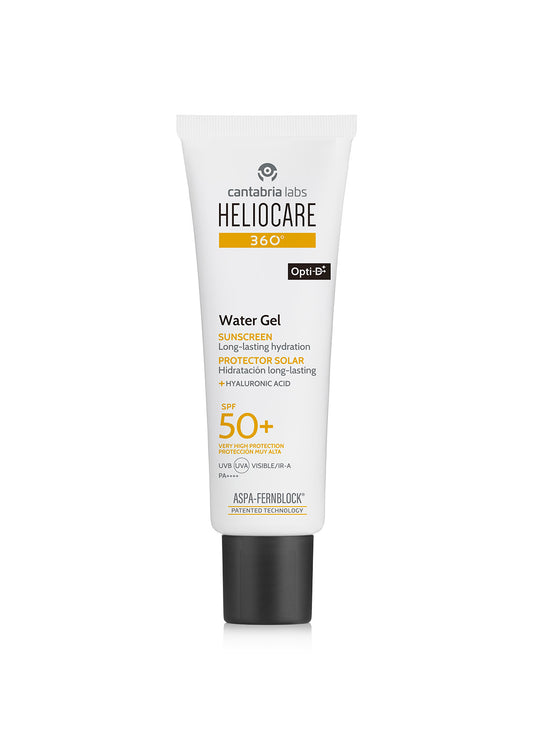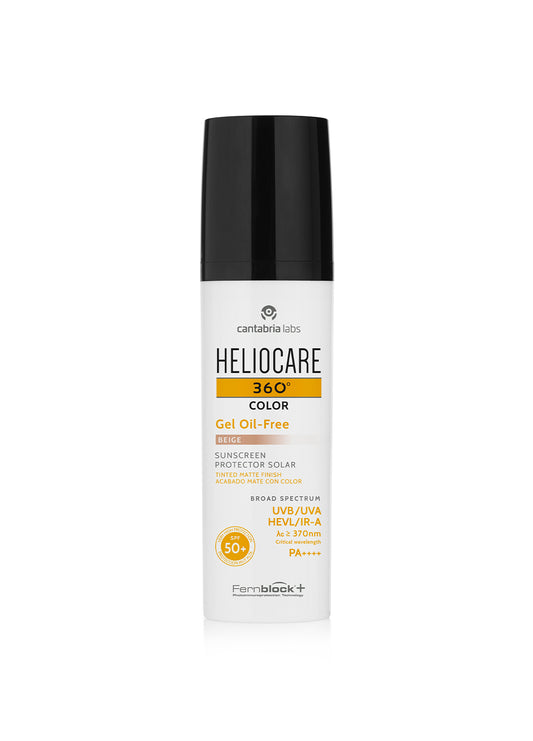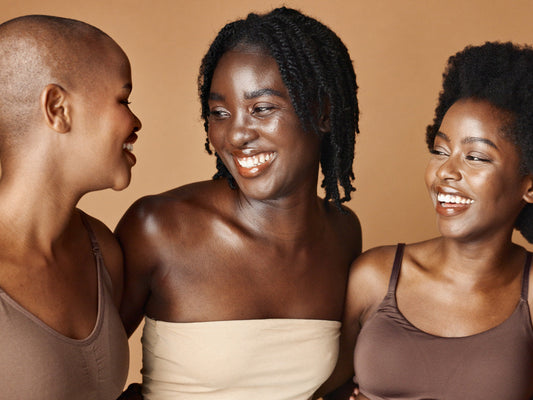Sun and SPF myths de-bunked with Dr Emma Wedgeworth
Published on 01 May 2023
Consultant Dermatologist
Dr. Emma Wedgeworth Clinic, Harley Street
Learn more about the author
The use of daily sun protection is a hot topic amongst skin professionals and skincare enthusiasts. However, there are still a lot of misconceptions when it comes to sun exposure, sun damage and the use of SPF.
Skin cancer is the most common form of cancer in the UK and sun exposure is a leading cause of skin cancer. Both long-term sun exposure and short periods of intense sun exposure (particularly with burning) damage the skin cell's DNA and can lead to mutations. Other signs of sun damage include premature skin ageing which can lead to dark spots and pigmentation, and collagen breakdown resulting in wrinkles, and loss of firmness and skin elasticity.
In support of Sun Awareness Week, Dr Emma Wedgeworth broke down some of the common myths around sun exposure and sunscreen.
Myth 1: ‘I only need to wear sunscreen in the summer months, when the sun is out, or when holidaying abroad.’
FALSE. Whilst it is extremely important to protect our skin against the hot sun we get on holiday or in the summer months, we mustn’t forget about the incidental exposure to solar radiation that can occur in our day-to-day lives. Depending on where we live in the world and our individual lifestyles, day-to-day sun exposure can contribute a very significant amount to our cumulative sun exposure, which can damage our skin cell's DNA which leading to an increased risk of skin cancer. In addition, UVA is more constant throughout the year, and can result in premature skin ageing such as pigmentation, wrinkles, and loss of elasticity. To make sure we are protecting our skin as much as we can, it’s essential to wear sunscreen on exposed areas of skin every day, all year round.
Myth 2: ‘If I wear sunscreen daily, I won’t get enough vitamin D.’
FALSE. Firstly, there is no good evidence that sunscreen prevents the skin from making vitamin D. Secondly, vitamin D synthesis by the skin requires UVB radiation. In the UK, UVB levels between October and April are not high enough to enable skin to make vitamin D, but other parts of the solar spectrum are high enough to potentially damage the skin. In addition, skin needs a large surface area exposed to the sun to make vitamin D – approximately 15-30%. Our face makes up just over 3% of our skin, so not enough to make adequate amounts of vitamin D. You also get a certain level of Vitamin D from food sources such as oily fish and fortified foods. However, this is often not enough to reach the recommended daily amount, so I do recommend to take a vitamin D supplement.
Myth 3: ‘I have dark skin/ tan easily, so I don’t need to wear sunscreen.’
FALSE. All skin tones can be damaged by the skin. Darker skin is still very much vulnerable to sun exposure and is more prone to pigmentation and textural changes. People with darker skin types may also tend to steer away from sunscreen due to the common misconception that all sunscreens leave a white cast. However, there are options available on the market today that have an invisible finish making them suitable for all Fitzpatrick skin types, such as the Heliocare 360° Water Gel.
Myth 4: ‘It’s too late for me to start using sun protection.’ (for mature skin with a history of heavy sun exposure)
FALSE. If you have had significant sun exposure in the past, your skin’s DNA (the genetic code) may have become damaged and accumulated some ‘spelling mistakes’. This means the skin’s natural repair mechanisms become faulty and even more damage can occur. If you continue to expose your skin to the sun, without protection, these spelling mistakes can eventually lead to a higher risk of skin cancer. So, it’s extremely important to protect your skin and use a high SPF, to reduce the risk of skin cancers. In addition, some studies have suggested that wearing sunscreen regularly can reverse some sun damage. For example, most Heliocare 360° products contain DNA Repair Enzymes, which can help to reverse DNA damage caused by UV radiation.
Myth 5: ‘You can’t get sunburnt in the shade or on a cloudy day.’
FALSE. Whilst avoiding direct sunlight by staying in the shade can reduce your risk of sun damage, protection is still needed, because UV can reflect off other surfaces like sand or water. And cloud cover doesn’t protect against burning because a significant proportion of UV rays can penetrate the clouds.
Myth 6: ‘I don’t need sunscreen because there’s SPF in my makeup/moisturiser.’
FALSE. SPF added to cosmetics is often not as broad-spectrum or as high quality as the filters found in a dedicated sun protection product. In addition, to achieve the SPF on the label of your product, you need to use enough of it. The SPF is calculated in laboratories by using 2ml/cm2 of skin. This is approximately 2 fingertip lengths for the face and neck, which is far more foundation than most of us would use. Always apply SPF before your foundation or use a tinted sunscreen as your foundation, rather than the other way round. The Heliocare 360° Color Gel Oil-Free is a great option. It is an SPF50+ sunscreen that provides broad-spectrum protection against UVB, UVB, Visible Light, and Infrared-A, providing a matte finish, foundation coverage.
Myth 7: ‘Tanning is safe as long as you don’t burn.’
FALSE. Intentionally trying to change the colour of your skin will damage it, even if you don’t burn. Most people, particularly those with darker skin tones, will find that their skin darkens over the summer months, because pigment known as melanin is produced to attempt to absorb UV and protect the skin against damage from UV radiation. This is normal when we are outside or doing sports, but intentionally exposing our skin to direct sunlight for long periods of time will cause damage in the long term – this might include signs of ageing such as pigmentation, lines, and wrinkles or more seriously, skin cancers.
'Having good sun awareness means making sun protection part of your daily routine. I’m a huge fan of Heliocare and will often recommend it to my patients, because it provides broad-spectrum protection against the four types of radiation that can cause sun damage – UVA, UVB, visible light and infrared-A. It also uses unique Fernblock® technology - a powerful antioxidant that helps to boost skin health and prevent premature skin ageing from within, as well as DNA repair enzymes to help repair DNA damage. With so many great products for different skin types there really is something for everyone!'





